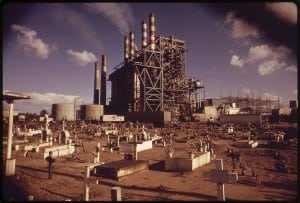PREPA
-
Energy Security
Winter Reliability Concerns Spur Fresh DOE Intervention for PJM, MISO
The Department of Energy (DOE) extended its run of federal grid interventions into winter over the past week, issuing a Section 202(c) emergency order on Nov. 18 for Consumers Energy’s 1,420-MW J.H. Campbell coal plant in Michigan and another on Nov. 25 for Constellation’s 760-MW Eddystone Units 3 and 4 in southeastern Pennsylvania in a […]
-
Legal & Regulatory
Federal Grid Interventions Enter a Second Phase as DOE Extends Emergency Orders
The Trump administration’s unprecedented use of emergency grid authorities entered a second phase in August 2025, as the Department of Energy (DOE) extended three critical reliability orders. The measures signal that this year’s historic string of federal interventions—staked in Section 202(c) of the Federal Power Act—are likely to continue beyond the traditional summer peak and […]
-
Power
DOE Orders Fossil Units Online After Puerto Rico Blackouts, Citing Dispatchable Capacity Need
The U.S. Department of Energy (DOE) has invoked emergency authority to compel Puerto Rico’s public utility to dispatch mothballed oil-fired and fossil-fueled power units, citing an imminent threat to grid reliability following two major blackouts in less than a month. Energy Secretary Chris Wright, acting on behalf of the DOE’s Office of Cybersecurity, Energy Security, […]
-
News
Economics Hamper Power Improvements in Puerto Rico
Puerto Rico has been battered by natural disasters in recent years, with hurricanes Irma and Maria in 2017, and a series of earthquakes in late December 2019 and early January 2020, causing widespread damage
-
Business
Public vs. Private: The Debate Continues
In the September issue of POWER , I wrote about a public utility (JEA) that is exploring privatization, and in October, I looked at a city (Boulder, Colorado) that is exploring municipalization. While I think
-
Business
Puerto Rico’s Utility Makes Debt Payment, Avoids Default
Puerto Rico Electric Power Authority, PREPA, Wednesday made a $415 million payment to its creditors (mostly hedge fund investors), avoiding a default and giving the troubled government-owned utility more time to work out a deal to restructure its $9 billion debt. Had the utility defaulted, according to financial experts, it could have triggered the default […]






